I Always Wake Up With Puffy Eyes—This Is How to Take Them Down Stat
My eyes love to give me grief. Whether it be my poor short-sighted vision, incessant dark circles or non-stop itching and irritation, my eyes have the power to totally ruin my day. And over the past year or so, I have another eye-related gripe to add to the list: puffiness. Whether I sleep for four hours or ten hours, I wake up with particularly puffy eyes every single day.
I’m not talking about minor eye bags either—I’m taking seriously puffy. My lash line looks swollen, my lids feel plump and sore, and my under-eye area looks totally void of life. But a few weeks ago, I decided to post about my predicament on my Instagram. I was astounded at the number of people that reached out to tell me that they too are struggling with such puffiness and asked if I had any tips on how to treat it.
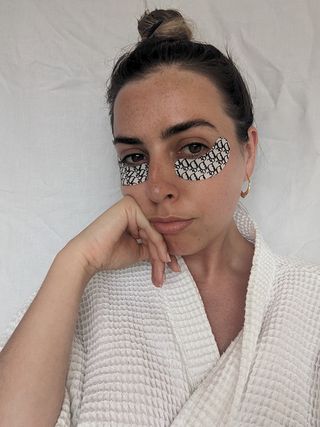
The truth was, I didn’t have any tips. Every message I received encouraged me a little more to reach out to some experts in a bid to find out what was going on, and best to take the puffiness down. The reasons, I discovered, for puffy eyes are broad-ranging.
Miss Elizabeth Hawkes, Consultant Ophthalmic and Oculoplastic Surgeon at the Cadogan Clinic explains, "Puffy eyes can be caused by a multitude of factors, including lack of sleep, crying, fluid retention, genetic, medical conditions (such as thyroid problems), and an unhealthy diet. At this time of year, seasonal allergies can play havoc and can cause itchy, watery, swollen, and puffy eyes.”
And with the possible causes of puffiness seeming abundant, I realised that addressing the individual causes of my puffiness could prove difficult. To help tackle my puffy eyes in the meantime, I wanted to know the simplest tips out there for helping to take the puffiness down. So, if like me you’re suffering from severe puffiness right now, here are eight expert-approved tips on how to treat puffy eyes quickly and easily.
1. Use A Cold or Caffeinated Compress
Reaching for cold spoons first thing in the morning to help take down puffy eyes might be a tale as old as time, but it's rooted in science. "Cold compresses are advised for allergies," says Hawkes. And with hayfever season in full swing, it's likely that many sufferers will be experiencing puffy eyes, along with other sides of allergy such as sneezing, a runny nose, congestion, coughing and itchy eyes. "It causes vasoconstriction of blood vessels and therefore helps to reduce eyelid swelling," she adds.
Caffeine is a skincare ingredient that is also praised for its ability to help depuff and reinvigorate the under-eye area—and you don't have to splurge on a specific eye cream. Roshni Patel BSC (Hons) MCOptom, optometrist at Lenstore says, "Both caffeine and cold can help to lessen the appearance of under-eye bags. A cool, green tea bag applied under the eye may help to reduce puffiness."
Shop Best Products:
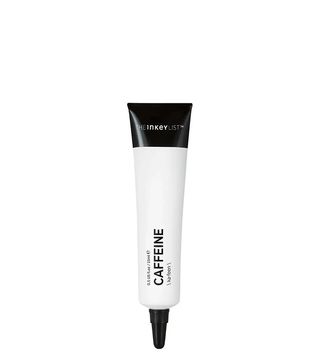
This caffeine eye serum works to reduce puffiness, minimise dark circles, and protect delicate skin from external aggressors.
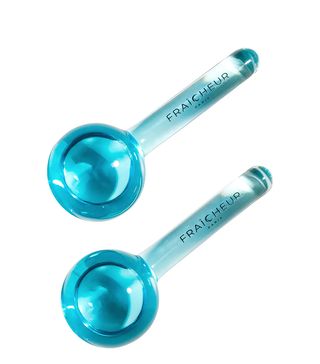
Stick these glass globes in the fridge before you go to bed and, after applying your skincare in the morning, roll them over the face and eyes to take down puffiness in just a few minutes.
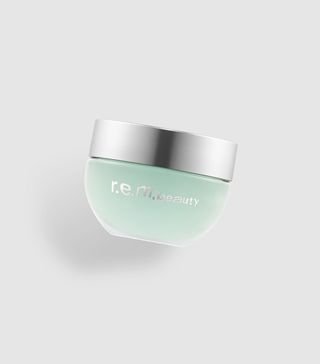
This under-eye balm feels wonderfully cool and refreshing on application and makes for the perfect makeup base.
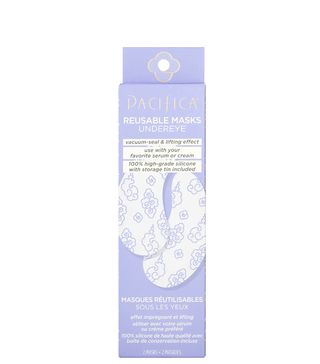
Pop on your favourite cooling eye cream and apply these reusable masks over the top to create a compress.
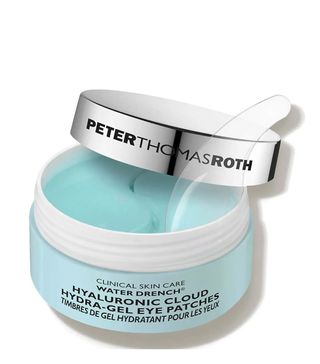
If you like your skincare to be quick and easy, these super-cooling, hydrating eye patches will likely be for you.
2. Quality Sleep
It seems silly to say, I know, but it's true that a lack of sleep will contribute to puffy eyes. While my puffy eyes seem to be constant, when I am particularly tired the puffiness is much more extreme. "A lack of rest is the most common reason for swollen eyes. It is important to sleep efficiently with regular hours," says Patel.
We all know that we should be getting 6-8 hours of shut-eye a night, but if you're experiencing puffy eyes, it's particularly important to be regimented about it. "Lack of sleep causes our eyes to become dry and irritated, leading to inflammation and swelling," says Hawkes. But it's not just about the amount of sleep we are getting, but the quality. Take time to unwind before bed, avoid screen time and give your brain time to switch off. When it comes to going to sleep, think about the way you position yourself, too. "Sleep with your head slightly propped up with pillows to help avoid fluid settling around your eyes," advises Hawkes.
Shop Best Products:
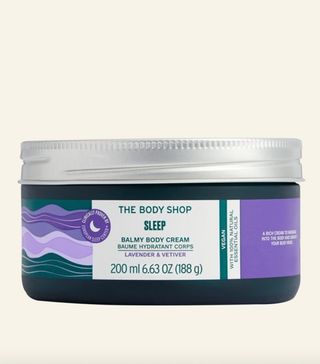
Slather limbs with this rich cream before bed and let the lavender and vetiver fragrance help you drift off into a blissful slumber.
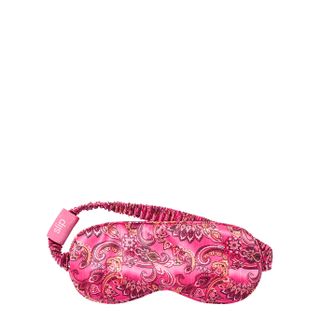
If you use an eye mask to sleep, this pretty silk option is a great way to keep the skin around your eyes protected.
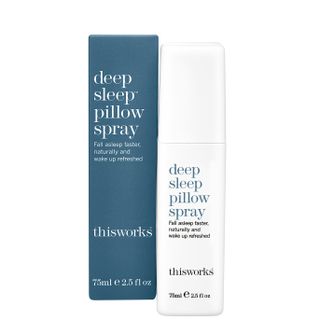
This pillow spray has become a staple in my household—neither myself nor my boyfriend get a good night's sleep without it.
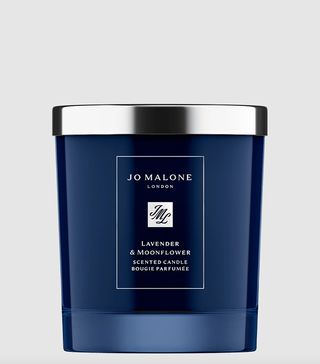
Light this candle a couple of hours before you plan to go to bed to help relax and calm your mind for a restful night's sleep.
3. Manage Your Allergies
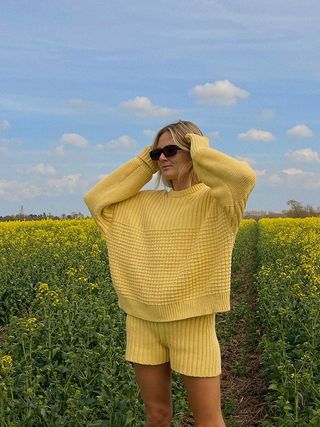
I've already mentioned that hayfever can be a big cause for concern when it comes to puffy eyes, but other allergies can be at play, too. "Eyes can develop a sensitivity to many allergens such as pollen, dust and animal dander. When these allergens come into contact with our eyes they can trigger an inflammatory response and release of a chemical called histamine. This causes the blood vessels in the eyes to become red and dilated. Additional redness may occur as a reaction to rubbing the eyes, exacerbating the symptoms," reveals Hawkes.
For most, reactions of this sort can be managed by taking anti-histamine medication. If you're concerned about your allergies, be sure to book an appointment with your GP to find out what the best course of treatment is for you.
4. Keep Hydrated
Is there a beauty issue that hydration can't help with? Not that I've found. When it comes to puffy eyes, dehydration has a big part to play in fluid retention. "Drinking at least two litres of water a day can help avoid dehydration," says Hawkes.
Similarly, dehydration is often though to lead to other skin issues, that can make puffy eyes appear worse. To make sure the skin around your eyes doesn't become dry and irritated, apply an eye cream to the orbital bone morning and night. (Be sure to avoid applying it too close to the eye itself!)
Shop Best Products:
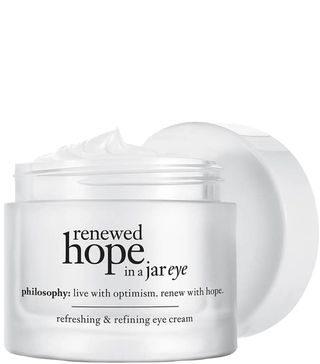
Specially developed to help eyes look more awake, this deeply moisturising eye cream is my go-to for mornings when I'm feeling particularly tired.
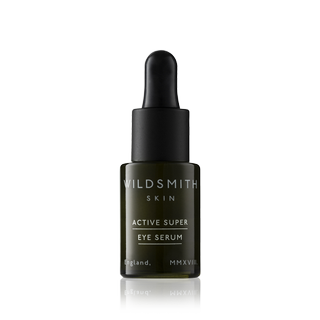
This stuff might be expensive, but it's one of the hardest working eye products I've used in a long time. The thin, watery texture is lovely and cooling, while green coffee extract delivers an ample dose of caffeine to leave eyes looking refreshed.
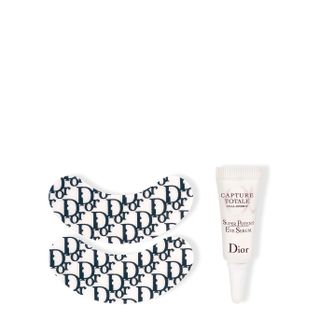
Do you need these cooling eye masks? Certainly not. But are they the chicest way to help take down under-eye puffiness? Absolutely.
5. Think About Your Diet
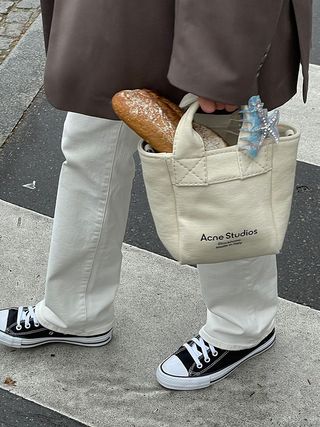
Typically, I don't like advising you to reassess your diet in a bid to solve beauty issues. However, there does appear to be a direct correlation between certain foods and fluid retention (and thus eye puffiness). "Salt encourages fluid retention in the body and can result in build-up under the yes. A reduction in salt intake may assist with reducing puffiness," says Patel.
Similarly, Hawkes says that excessive amount of sugar could worsen puffiness. "Inflammatory foods such as sugar can cause puffiness and swelling so try to reduce your intake," she says.
6. Cleanse Gently
It's not news that irritation can cause exacerbated puffiness, so it's absolutely essential that you're properly removing your makeup at night. The smallest trace of mascara, glitter or other makeup entering the eye can cause damage. "Leaving eye makeup on overnight can irritate your eyes and, as a result, increase your chances of infection," warns Patel.
Having said that, it's also important to make sure you're not aggravating your eyes in the cleansing process. Any sort of rubbing and abrasion is a surefire way to cause irritation. Look for non-irritating cleansers that provide a good slip to remove eye makeup.
Shop Best Products:
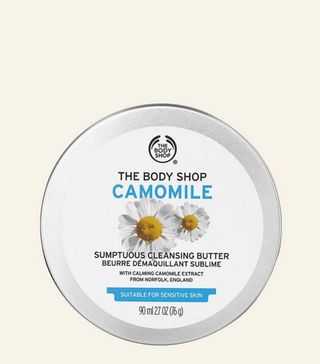
This gentle cleansing butter has been my go-to makeup remover for years. It rids lashes and lids of stubborn formulas with unparalleled ease and leaves skin looking plump and glowing while it's at it.
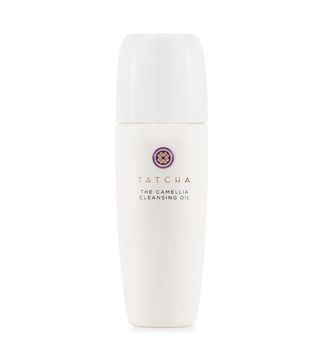
Cleansing oils are a great way to remove eye makeup without the need for scrubbing. This oil has quickly become my favourite for a particularly luxurious evening routine.
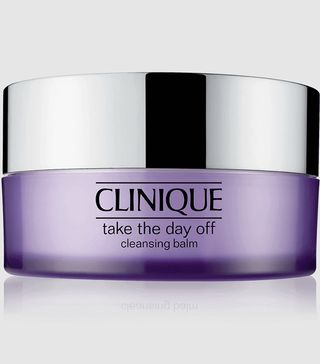
Whenever I'm trying to ween a friend off of abrasive wipes and micellar waters, this is the first product I recommend—and I'm yet to fail in convincing anyone it's the right move.
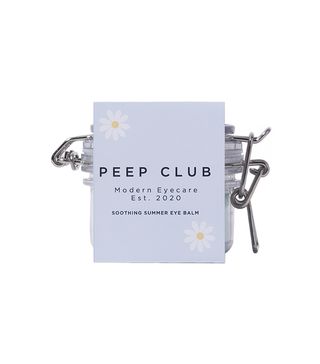
Peep Club is a brand specially formulated for dry eyes, and this soothing balm can be applied to a cotton pad and swiped over eyes for super-quick and non-irritating makeup removal.
7. Reduce Stress
Whatever your beauty hang-up, there's high chance stress isn't going to help the situation. It's thought by experts that stress plays a big role in exacerbating inflammation (which is never good news), but when it comes to puffy eyes it has even more negative effects. "Stress can lead to worse sleep and therefore puffy eyes. Dealing with it with options like exercise and lifestyle decisions can help protect your mental health and reduce the toll on your body," says Patel.
While I know it's easier said than done, taking just a few minutes a day to recentre and really help minimise stress levels. Having said that, if you are worried about your stress levels or if they're excessively impacting your day-to-day life, be sure to seek medical advice.
Shop Best Products:
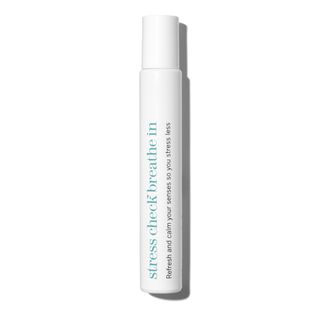
Pop this rollerball in your handbag and roll onto pulse points whenever you're feeling particularly highly strung.
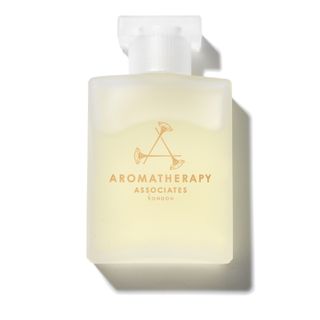
If you've had a stressful day, run yourself a bath with this mind-clearing oil—I guarantee you'll get out feeling like a new person.
8. Consider What You Drink
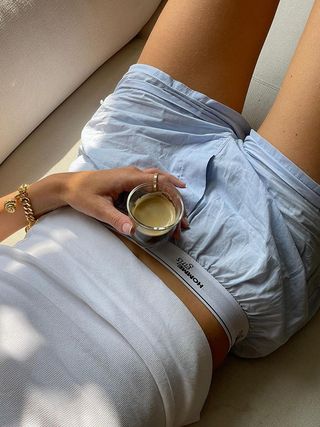
As with the foods we eat, experts advise that it is almost important to keep an eye on the liquids we consume. While sufficient water intake is recommended, not all liquids are good for puffiness. "It might be worth reducing your intake of alcohol as it contributes to dehydration," says Patel. Similarly, drinks high in caffeine, such as coffee, can also lead to inflammation and dehydration.
Next up, trust me—these are the best under-eye concealers to help disguise dark circles.
Shannon Lawlor is a renowned beauty journalist and has contributed to Who What Wear’s beauty content since 2020. As a leading beauty editor, expert and brand consultant, she has over eight years of experience working for some of the industry’s most esteemed titles, including Who What Wear (of course), Glamour UK, Stylist, Refinery29 and Fabulous. Having also worked behind the scenes with some of the industry’s biggest brands and retailers, Shannon has a unique insight into what people really want from their beauty routines. Understanding that beauty lovers seek honest, open and responsible advice, she has it made her mission to demystify the intimidating world of beauty, taking a no-frills approach to the most relatable topics. While Shannon is the first to admit she doesn’t hold the answer to every beauty question out there, she is dedicated to sharing her expert insights in a bid to help. As a self-proclaimed lazy girl, Shannon has an affinity for easy-to-use, foolproof beauty products and has made it her mission to scope out the best of the best. When she’s not working, Shannon is likely soaking in the bath or giving no-holds-barred beauty reviews on Instagram from her bathroom floor.